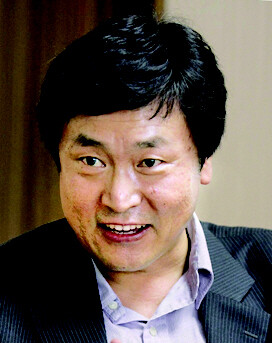hankyoreh
Links to other country sites 다른 나라 사이트 링크
[Column] New relationship with Washington is a prerequisite for peace on the Korean Peninsula

“I will not be the chancellor of a conquered Germany; I will be chancellor of a liberated Germany.”
This was the first message to the world shared by Willy Brandt of the Social Democratic Party of Germany (SDP) when he was elected chancellor on Oct. 21, 1969. It was both the declaration of a new beginning for West Germany after Brandt’s success in achieving the first change of ruling parties since the end of World War II, and it was also a resolute statement of commitment directed at the “victors” in the US, affirming that he would be adopting an autonomous approach to policies. In retrospect, Brandt’s “declaration of independence” was the signal flare for Germany’s eventual reunification.
If Brandt had shown the same attitude of subordination to the US as past chancellors, who had prostrated themselves as the “conquered,” the Ostpolitik that paved the way for reunification would never have been implemented, and the Berlin Wall might still be standing today. We should never forget that the path to German reunification was opened up when West Germany adopted its own way, leaving behind its relationship of dependence to the US.
For Korea as well, forming a new relationship with Washington is a prerequisite for peace on the Korean Peninsula and reunification. Over the past two years, we have acutely experienced how neither peace on the peninsula nor reunification of South and North will be possible without us reconfiguring our relationship with the US. The basic reason that South Korean President Moon Jae-in’s Korean Peninsula peace process has become bogged down is because it fell victim of the fantasy that it would be possible to usher in change to the peninsula while maintaining Seoul’s conventional relationship of dependence on Washington. A new order for the Korean Peninsula cannot be created without breaking free from the patterns of the Cold War era.
Now is a time that calls for the Moon administration to establish a qualitatively different relationship with the US, approaching that task with courage and vision. The situation is not that bad. In two respects, this is a favorable moment for establishing relations on equal terms with the US.
First, there is the matter of the Moon administration’s historical legitimacy.
Just as Brandt was able to represent a “liberated Germany” because he was a chancellor with a record of combating Nazism, Moon symbolizes the “new South Korea” because his presidency is the result of the candlelight revolution. Whereas past military dictators lacking democratic legitimacy and their inheritors showed a submissive attitude toward Washington, the Moon administration is establishing the international stature needed to confidently assert South Korea’s sovereignty and rights. It needs to act boldly, recognizing that it is a breed apart from the Trump administration, which has become a global laughing stock. However strong a nation the US may be, the world’s conscience and reason are still on the side of moral authority.
S. Korean public no longer views US as protectors of democracy and freedomSecond, there is the matter of the sheer shamelessness the US has been displaying. For the most part, the “dangerous case” of Donald Trump has laid waste to the image of the US that has dominated in South Korea since the end of the Korean War -- that of the US as “saviors” and objects of envy. Under Trump’s leadership, it has become vividly apparently that the US is neither protector of the free world nor defender of human rights nor apostle of justice, but merely a dominant power seeking its own national interests. South Korea’s people have finally come to realize how irresponsible and dangerous it is to rely solely on the US’ “good will.” The majority of the public’s support for the decision to terminate the South Korea-Japan General Security of Military Information Agreement (GSOMIA) is proof of the growing voice for an autonomous relationship vis-a-vis the US.
As an indicator pointing to a new relationship with Washington, it would be good to see the administration beginning the second half of its term with the proclamation of a “Moon Jae-in doctrine.” Unless we state clear principles for our diplomacy, we run the risk of being helplessly led by the US’ unfair demands. As a statement of autonomous diplomatic principles for a “post-Cold War era,” the doctrine should include the following terms:
“1. We shall pursue peace and shared prosperity for the Korean Peninsula according to the basic principles of the modern state, namely ethnic self-determination and popular sovereignty.
2. We oppose any and all actions that are contrary to these aims.”
If these principles are formally proclaimed, they will furnish an important basis for standing up against the US’ unilateral pressure.
Does Washington even view Seoul as an ally?Each day, we are bearing witness to the arrogance of the US. The recent situation -- with the Secretary of Defense, Deputy Secretary of Defense, Joint Chiefs of Staff Chairman, South Korea-US Combined Forces Commander, and the US Ambassador all being enlisted in a full-scale effort to pressure South Korea into a larger defense cost contribution and a withdrawal of the GOSMIA termination -- is enough to leave one wondering whether Washington regards this country as a sovereign state at all, let alone an ally.

The Moon administration will need to be even bolder in its dealings with the US. It cannot steer the Korean Peninsula toward peace and unification when it is submitting to the US and allowing itself to be helplessly dragged around. The South Korea-US alliance must also undergo a qualitative transformation and become truly worthy of the designation “alliance.” A true alliance is not a subordinate relationship but an equal one; it is rooted in mutual respect, not hierarchy and submission. Only when we stand tall before the US can the Korean Peninsula change.
By Kim Nu-ri, professor of German literature at Chung-ang University
Please direct comments or questions to [english@hani.co.kr]

Editorial・opinion
![[Column] Season 2 of special prosecutor probe may be coming to Korea soon [Column] Season 2 of special prosecutor probe may be coming to Korea soon](https://flexible.img.hani.co.kr/flexible/normal/500/300/imgdb/original/2024/0426/3317141030699447.jpg) [Column] Season 2 of special prosecutor probe may be coming to Korea soon
[Column] Season 2 of special prosecutor probe may be coming to Korea soon![[Column] Park Geun-hye déjà vu in Yoon Suk-yeol [Column] Park Geun-hye déjà vu in Yoon Suk-yeol](https://flexible.img.hani.co.kr/flexible/normal/500/300/imgdb/original/2024/0424/651713945113788.jpg) [Column] Park Geun-hye déjà vu in Yoon Suk-yeol
[Column] Park Geun-hye déjà vu in Yoon Suk-yeol- [Editorial] New weight of N. Korea’s nuclear threats makes dialogue all the more urgent
- [Guest essay] The real reason Korea’s new right wants to dub Rhee a founding father
- [Column] ‘Choson’: Is it time we start referring to N. Korea in its own terms?
- [Editorial] Japan’s rewriting of history with Korea has gone too far
- [Column] The president’s questionable capacity for dialogue
- [Column] Are chaebol firms just pizza pies for families to divvy up as they please?
- [Column] Has Korea, too, crossed the Rubicon on China?
- [Correspondent’s column] In Japan’s alliance with US, echoes of its past alliances with UK
Most viewed articles
- 1‘We must say no’: Seoul defense chief on Korean, USFK involvement in hypothetical Taiwan crisis
- 2Why Kim Jong-un is scrapping the term ‘Day of the Sun’ and toning down fanfare for predecessors
- 3Two factors that’ll decide if Korea’s economy keeps on its upward trend
- 4BTS says it wants to continue to “speak out against anti-Asian hate”
- 5After election rout, Yoon’s left with 3 choices for dealing with the opposition
- 6Gangnam murderer says he killed “because women have always ignored me”
- 7South Korea officially an aged society just 17 years after becoming aging society
- 8AI is catching up with humans at a ‘shocking’ rate
- 9Ethnic Koreans in Japan's Utoro village wait for Seoul's help
- 1046% of cases of violence against women in Korea perpetrated by intimate partner, study finds